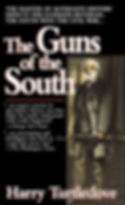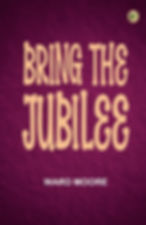Top 7 Civil War Alternate History Books
- EA Baker
- Jul 17, 2025
- 6 min read
Updated: Jan 14
The American Civil War is one of the most consequential moments in American history. In today’s world, it may seem America is as divided as ever. However, one must remember that division has always been commonplace in America, for our governmental system was built on debate and disagreement. Moreover, as we all seek escapism from the dissonance of our time, I think it’s important to have the perspective that while we may see discord today, there has never been a more divided America than during the time of Lincoln.
To set the stage, the issue of slavery had remained since the country’s founding as the metaphorical can that must be kicked down the road. Unfortunately, that can was kicked one too many times, and the boiling point over the issue finally reached its critical temperature in 1861. As the first shots at Fort Sumter were fired, America would plunge itself into the bloodiest conflict it had ever seen—all for a noble cause, to safeguard the Union by bringing an end to slavery.
But what if the war had ended differently? What if, God forbid, the Confederate States of America had defeated the Union? What would America and its role on the world stage look like in the coming years? Such questions were explored by seven key authors and their novels on the topic. In this blog, I will highlight my top seven alternative civil war books, which will provide you with a sense of gratitude and appreciation for the world we live in today, as opposed to what might have been.

Number 1: The Guns of the South by Harry Turtledove
Harry Turtledove is one of the most well-known authors in the alternate history genre. For that reason, I am giving his book the first spot even though he always makes it on these types of lists.
In this novel, he fuses science fiction and alternate history, imagining a world where the Confederacy gains a second chance thanks to time-traveling white supremacists from the 21st century. These mysterious "Rivington men" arrive with a game-changing gift: thousands of modern AK-47 rifles. Armed with advanced weaponry decades ahead of its time, General Robert E. Lee’s Confederate Army begins turning the tide of the war. But as the South edges closer to victory, Lee becomes increasingly disturbed by the true motives and ideology of his new allies.
Torn between military success and his personal moral code, Lee must confront whether this future is worth the price—and whether he can shape a different kind of victory than his benefactors intended.

Number 2: Shattered Nation: An Alternate History of the American Civil War by Jeffrey Evan Brooks
A common favorite for this alternate history period, Brooks offers a painstakingly detailed reimagining of the American Civil War, grounded in real military strategy and historical nuance. The pivotal divergence in his timeline is marked by a decisive victory for Confederate General Robert E. Lee at the Battle of Antietam in 1862. What follows is a cascading series of events that change the course of the war and the future of the American continent.
With vivid characterizations of historical figures from Abraham Lincoln to Jefferson Davis, Brooks paints a grim, fractured landscape where peace is elusive, alliances shift rapidly, and neither side emerges unscathed. Far from a simple Southern triumph, this alternate history illustrates the moral, political, and humanitarian cost of a prolonged and altered war. It’s a sobering portrait of what might have been—and a warning about the fragility of democratic ideals under pressure.

Number 3: Dixie Victorious: An Alternate History of the Civil War by Peter G. Tsouras
A compelling anthology of counterfactual military history, Dixie Victorious gathers a team of historians and military analysts to explore the myriad ways the Confederacy could have won the Civil War. Similar to one of my favorite novels, If the Allies Had Fallen: Sixty Alternate History Scenarios of World War II, each chapter proposes a plausible point of divergence. Ranging from Lee's pressing of his advantage at Antietam to foreign intervention by Britain and France, the book explores the strategic and political consequences of such developments.
Rather than a romanticized Southern victory, these scenarios delve into complex outcomes of guerrilla warfare, occupation politics, international complications, and the fate of slavery in a triumphant Confederacy. Tsouras’ collection isn’t just speculation; it’s a rigorous and thought-provoking exercise in contingency, exploring how small choices and miscalculations could have profoundly altered the trajectory of history.

Number 4: Gettysburg: A Novel of the Civil War
In this gripping reimagining of America’s most famous battle, former Speaker of the House Newt Gingrich and historian William R. Forstchen ask a simple question: What if General Robert E. Lee had not ordered Pickett’s Charge? By choosing a more flexible and coordinated plan, Lee gives the Confederacy a real chance at achieving a breakthrough at Gettysburg.
Told through the perspectives of iconic leaders like Lee, Longstreet, Meade, and Lincoln, the novel recreates the chaos, courage, and desperation of war, blending real personalities with speculative developments. The result is a battle that doesn’t end in three days, but drags on in new and unexpected ways. The authors craft a tense, character-driven military drama that honors the historical source material while posing challenging questions about leadership, sacrifice, and the razor-thin margin between triumph and disaster.

Number 5: Ward Moore's Bring the Jubilee
In this haunting classic, the Confederate States of America have become the dominant world power, while the United States—defeated and diminished—languishes in poverty and obscurity. Hodge Backmaker, a disillusioned historian born into this failed Northern society, escapes his stagnant life to join a secluded intellectual colony. There, he gains access to a revolutionary scientific experiment—time travel.
Determined to witness the Battle of Gettysburg firsthand, Hodge journeys to the fateful moment that changed the world. But his actions, seemingly insignificant, trigger a cascade of changes that restore the Union’s victory—at the cost of erasing his future. A melancholic meditation on fate, memory, and unintended consequences, Bring the Jubilee is a cornerstone of alternate history fiction.

Number 6: Underground Airlines by Ben Winters
In a chilling version of present-day America, the Civil War never happened, and slavery still exists. The "Hard Four" Southern states have preserved the institution through legal and economic loopholes, protected by constitutional compromise. Victor is a former slave turned government tracker, hunting down fugitives who escape the Hard Four through the clandestine network known as the Underground Airlines.
But when a new assignment leads him to a high-profile case surrounded by secrecy and inconsistencies, Victor begins to question the world he helps uphold. As he uncovers a deeper conspiracy, he’s forced to confront the realities of systemic oppression, identity, and complicity. Winters' novel is a tense, noir-flavored thriller with powerful commentary on racial injustice, set in a dystopia that feels uncomfortably close to reality.

Number 7: The Wild Blue and the Gray William Sanders
Given that my alternate history series deals with World War I, also known as the Great War, I saved this one for last. In 1916, in a world where the Confederate States of America (CSA) had gained independence, the Great War had drawn unlikely allies into a brutal new chapter. The CSA, honoring its historic bond with Britain, has joined the fray in France—and like everyone else, finds itself mired in the trench-ridden slaughter of the Western Front. But this isn’t the war Lieutenant Amos Ninekiller expected.
A fighter pilot from the independent Cherokee Nation, Ninekiller, arrives at a Confederate airfield to "see how the white people wage war." Told with biting wit and razor-edged satire, The Wild Blue and the Gray is a dark antiwar comedy that skewers the romanticism of war and the crumbling myths of empire. Sanders blends alternative history, steampunk elements, and First World War aerial combat into a narrative that's as sharply funny as it is unsettlingly real. Revised and re-released in a definitive edition, this novel reminds us that sometimes, the only way to endure catastrophe is to laugh at it, while flying straight into it.
Make sure to check out some of the other blogs in this series to uncover more great alternate history novels across different periods:
If you liked this blog post, make sure to join my newsletter, where you get a writing recommendation each month, updates on new blogs and my writing, as well as a bit of history.



